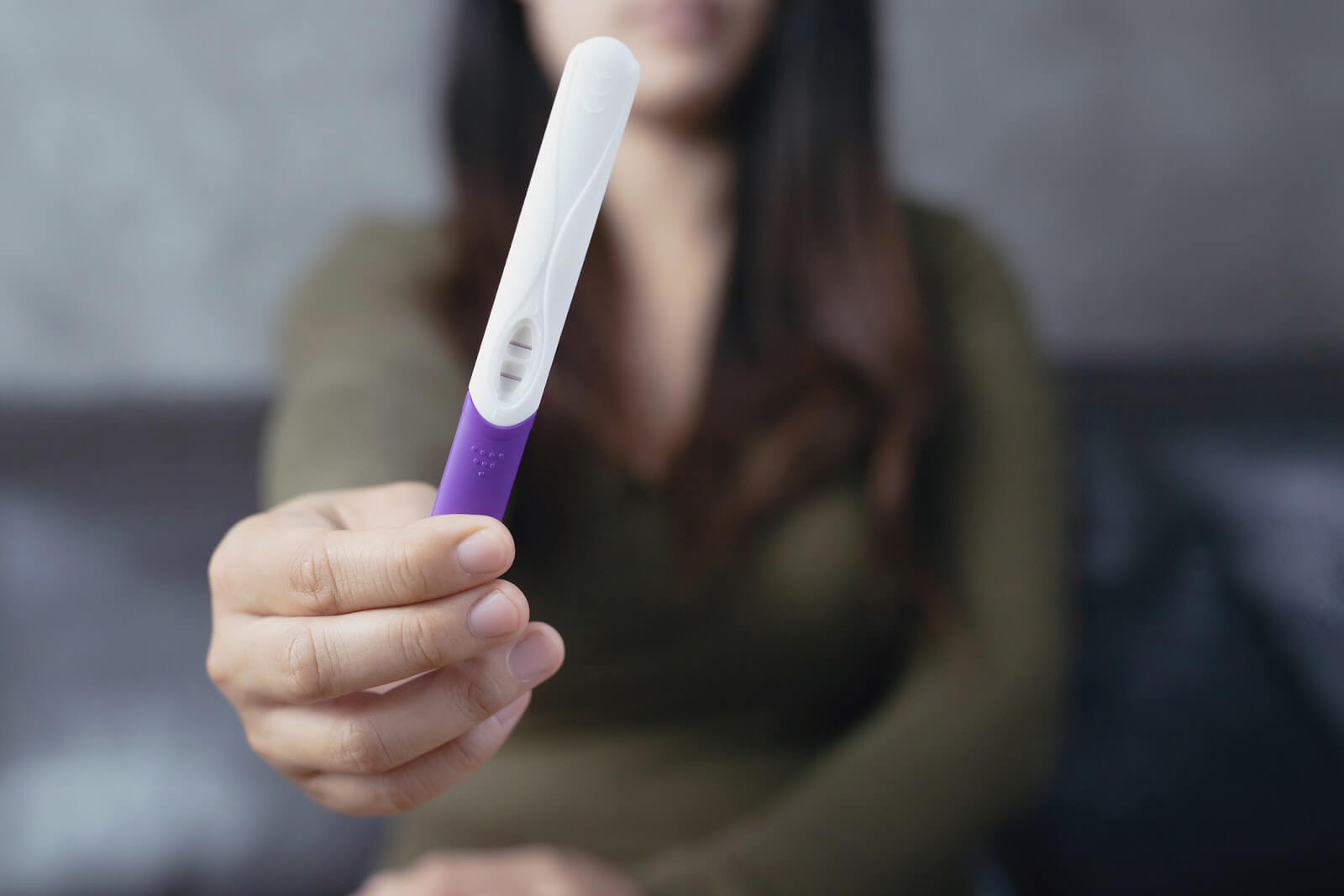You’re ready to see if you’re pregnant, so you reach for a home pregnancy test. But first, a few thoughts cross your mind. How does this work? How will I know if it’s accurate? When is the best time to take it? In this article, we’ll address all your questions and concerns about pregnancy tests.
How Pregnancy Tests Work
The two main types of pregnancy tests are urine and blood tests. Home pregnancy tests are urine tests, while you can get blood pregnancy tests at the doctor’s office.
Urine Pregnancy Tests
Home pregnancy tests are made to read your urine to detect the pregnancy hormone, human chorionic gonadotropin (hCG). Your body produces this hormone when a fertilized egg attaches itself to the uterus. This typically occurs 6 days after fertilization. After that, hCG levels increase rapidly, doubling every 2 to 3 days.
Follow the instructions on the box to get the most accurate results. Most pregnancy tests will have you hold the stick in your urine stream, or collect your urine in a cup and dip the test inside. The device will take at least a few minutes to detect the hCG hormone.
Blood Pregnancy Tests
You may decide to get a blood pregnancy test at the doctor’s office to confirm the home pregnancy test. They use blood to more accurately test hCG levels. Blood pregnancy tests can detect pregnancies much earlier than urine pregnancy tests, as soon as 6 days after ovulation.
How Accurate Are Pregnancy Tests?
Home pregnancy tests claim to be 99% accurate, but that only applies if you take the test a whole week after a missed period. Many home pregnancy tests claim to be able to detect a pregnancy as early as the first day of a missed period.
A 2004 study done by Laurence Cole, MD and the University of New Mexico tested 18 home pregnancy tests’ accuracy claims. They found that extra-sensitive tests may be able to detect a pregnancy at 80% accuracy, while most home pregnancy tests only detect pregnancy at 16% accuracy the day after a missed period.
Although pregnancy tests are sensitive to hCG levels, Cole’s studies found that levels can vary greatly in urine several days after implantation. This means that even if the test can detect pregnancy the day of a missed period, you are more likely to get a false negative result if your urine doesn’t have enough hCG. Most tests are also not sensitive enough to detect pregnancy right after implantation.
This means that home pregnancy tests are 99% effective only when taken at least a week after your first missed period. Even though packages claim you can take a test earlier, they may not be as accurate as the box promises.
Some other variables may make pregnancy tests less effective, such as:
- The pregnancy test is expired
- You took the test wrong
- You’re on medications such as antihistamines and diuretics
How Early Can You Take a Home Pregnancy Test?
Many pregnancy tests claim you can take a test early, such as before a missed period. You can take a test that early, but chances are higher that you will receive a false negative if you truly are pregnant.
To get the best results, wait at least a week after your first missed period to take a home pregnancy test.
False Negatives and False Positives
It’s possible to get a false negative or false positive result when you’re taking home pregnancy tests. That being said, it is more common to receive a false negative than a false positive. In fact, false positives are very rare.
In rare circumstances, a false positive can result from:
- A recent pregnancy, including miscarriage
- A form of rare ovarian cyst
- Fertility treatments that use the hCG hormone
You can also receive a positive result and then get a negative result later. Most of the time, this means you had a chemical pregnancy, or an early loss. In this case, it wasn’t a false positive because you actually were pregnant.
If you get a negative test result, you could still be pregnant. This can happen if:
- Your urine was diluted from drinking too many fluids before taking the test
- You took the test too soon
- You didn’t wait the recommended amount of time
If you get a negative test result and don’t start your period in the next week, you should take another pregnancy test. Some home pregnancy tests recommend taking two tests no matter the results on the first one.
What to Do Next
Once you receive a positive home pregnancy test, make an appointment with your healthcare provider. They may issue a blood pregnancy test or do a pelvic exam to verify the result. From there, your doctor can tell you when your baby is due and you can make decisions about your pregnancy.
Are you looking for an OB/Gyn you can trust? Do you live in the Tucson area? Book an appointment today!
Sources:
- https://www.webmd.com/baby/guide/pregnancy-tests#1
- https://www.verywellfamily.com/home-pregnancy-tests-906656
- https://www.ajog.org/article/S0002-9378(03)01135-9/fulltext
- https://www.clearblue.com/pregnancy-tests/false-positive-results
- https://www.copperstateobgyn.com/calculating-your-babys-due-date/

